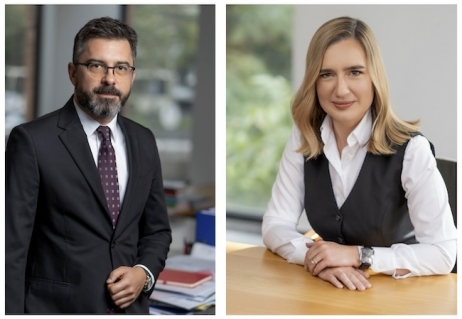
Numerous renewal energy projects were blocked as a result of the minutes of the National Union of Notaries Public from Romania and the National Agency of Cadastre and Real Estate Publicity issued on May 2022, which limited the right of use (of building rights) of certain lands for the development of green energy projects. However, thanks to an action initiated by nextE Renewable through the law firm Berechet Rusu Hiriț, in 2023 the court decided that the interpretation of the UNNPR was illegal, which gives the opportunity to investors or developers of renewable energy projects to complete the projects started and start new projects on lands with forest vegetation, pastures, hayfields owned by historical associations of owners.
The National Union of Notaries Public from Romania and the National Agency for Cadastre and Real Estate Publicity issued, on May 23, 2022, a minute blocking all projects for the production of renewable energy developed on land with forest vegetation, pastures and hayfields owned by owners' associations (legally referred to as composesorates, communals, etc.). Through this document, the public notaries and the land registry and real estate publicity officers were instructed to no longer authenticate the contracts granting usufruct rights over these lands, respectively to no longer enter these rights in the land registers because these contracts would be absolutely null.
The immediate effect of this interpretation was to suspend the development of many green energy projects because the producer or project developer could not obtain legal land use.
Towards the end of 2022, nextE, a company that develops and operates electricity production capacities from photovoltaic sources in the C&I (Commercial & Industrial) regime with the delivery of energy directly to the final consumer, represented by the law firm Berechet Rusu Hiriț, has launched a completed process with the pronouncement of a court decision by which the Bucharest District Court 1 refuted this interpretation as illegal as it is economically unhealthy. Thus, the court ordered the authentication of such a contract (of building rights) through which the right to use the land is transferred from the owner to nextE. The court decision remained final at the end of 2023.
"The interpretation of the NUNPR that blocked highly valuable renewable energy investments was the result of a confusion between the 'alienation' of land and the 'conveyance of a fixed-term usufruct right.' "The stake of this file was, first of all, to invalidate an interpretation that is as legally absurd as it is economically malignant for our clients who are active in the field of renewables. But it was also very important that the process be judged relatively quickly because time is essential for the development of such projects." explains Mădălina Berechet, Berechet Rusu Hiriț Partner.
"We appreciated, in the decision issued by the District Court 1, the special emphasis placed on the absurd consequence of the interpretation given in the minutes of the two authorities, which creates a more drastic, more limiting legal regime with respect to the composed lands than in the case of public property." says Valentin Hiriț, Berechet Rusu Hiriț Partner.
Although the interpretation of the UNNPR was invalidated by a final court decision, the National Union of Notaries Public from Romania did not change its perspective which blocked significant projects and investments in the field of renewable energy for 18 months. In the situation where this interpretation will not be reversed, the court decision obtained by nextE will impact not only the ones who initiated the process and can now complete theor project, but also other market players who can use the sentence as a precedent in their own efforts to obtain recognition of the right to use lands with forest vegetation, pastures and hayfields owned by historical associations of owners in the development of green energy projects.
"It remains for those who are further prejudiced by this interpretation, investors, developers of renewable projects, to initiate lawsuits against every refusal of any notary public or land book references to recognize the validity of surface contracts," concluded Mădălina Berechet, lawyer directly involved in the process.
Bogdan Cordos, Chief Legal and Strategy Officer at nextE explains the developer's perspective on the whole process:
"The construction of new energy production capacities from renewable sources, including photovoltaic power plants, is a national objective assumed, both by law and by the multiple public statements of the Romanian and European authorities. nextE focuses on the development of medium and large PV power plants, and these projects require large areas of compact land. Thus, it is natural for nextE, and other developers, to initiate long-term partnerships with owner associations (composesorates), partnerships that ensure substantial financial benefits for the members of these associations, the use and superior valorization of these lands and, by applying the recognized agriPV system by Law 18/1991, continuation of agricultural activity.
In this context, the UNNPR and ANCPI minutes were an unpleasant surprise both for us and for the owners' association, our partner in this far-reaching project. We are talking about an investment worth many millions of euros, with major benefits for the local community. The interpretation of the disputed minute by us came practically against the will of the parties and caused long delays and additional costs for the project.
We are satisfied with the court's decision and we hope that our approach will help other owners' associations to make the best use of the land they own, including by developing new capacities for the production of energy from renewable sources. nextE's philosophy is to create added value in the communities where we develop and operate our projects. Thank you, BRH legal team, for this success!”
The team of lawyers that assisted and represented the green energy producer throughout the process was coordinated by Mădălina Berechet and Valentin Hiriț.



 January 24, 2024 09:20
January 24, 2024 09:20 










